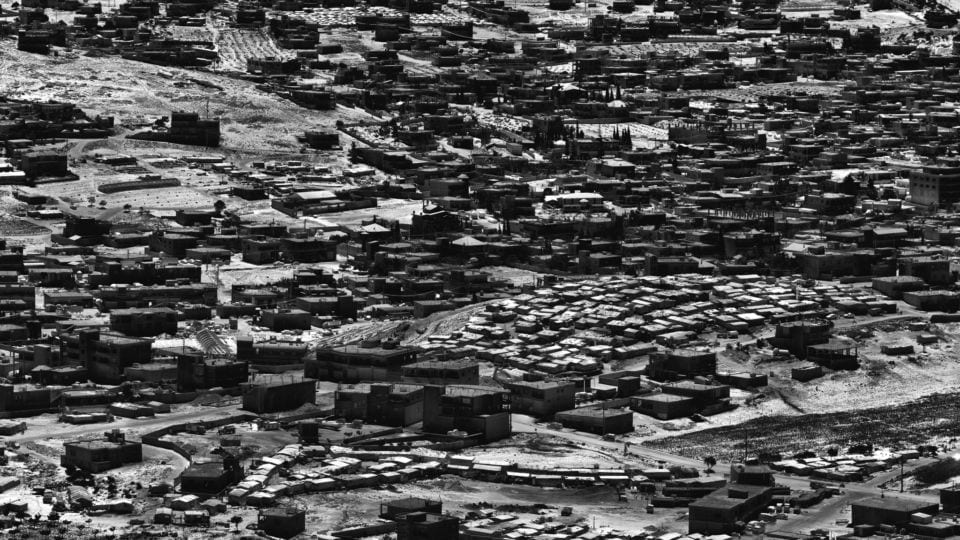For several years, photographer Richard Mosse (b. 1980) has been documenting the ongoing refugee and migration crisis in the Middle East, North Africa and Europe. Questioning visibility, the results – captured using a military-grade thermal camera – reveal the reality of the lived experience for these communities. At the locus of these investigations is a need to explore governmental and societal perceptions, looking to notions of omission and redaction.
A new publication from MACK, entitled The Castle, repurposes specialist video imaging equipment designed for border enforcement and insurgent detection. Registering only heat, the technology transforms figures, architecture and infrastructure into monochrome. These images are then broken down and layered to create panoramic “heat maps” which speak to the lives of refugees across 28 global sites.

Drawing attention to the provisional built environment of refugee camps – and its relationship to the wider world – the works present barbed fences, security gates, loudspeakers and temporary shelters across both close-up and panoramic perspectives. In this way, the series demonstrates how such camps are divorced from adjacent civilian infrastructure, pointing towards harsh physical conditions.
For example, Tempelhorf Airport, Berlin (2018) depicts a container village situated in a disused airport overlooked by a Cold War-era radar detection tower. A crazy golf course is located adjacent to the shelter, alongside venues used for major cultural sporting events. A poignant sense of disconnect is apparent – a theme which runs throughout the series.
The publication offers a truly immersive, tactile reading experience. Making full use of the printed format, the large-scale images – reproduced in silver inks on black paper – extend over multiple gatefolds – emphasising the scale of global migration through a physical approach. Each piece is thoughtfully annotated to provide context and enhance understanding, blending text and visuals to offer readers further insight.
Highlighting how refugees and migrants are excluded from society, the body of work comes face to face with dehumanisation, asking audiences to consider the current conditions of living for some of the most immobilised and surveyed people in the world.
The Castle is now available. Find out the more here.
Credits:
1. Richard Mosse, ‘Aarsal, eastern Bekaa Valley, Lebanon, June 2017’, in The Castle (MACK, 2018). Courtesy of the artist and MACK.
2. Richard Mosse, Adaševci transit camp, Serbia, July 2017’, in The Castle(MACK, 2018). Courtesy of the artist and MACK.
3. Richard Mosse, ‘Moria in Snow I, Lesbos, Greece, January 2017’, in The Castle (MACK, 2018). Courtesy of the artist and MACK.





